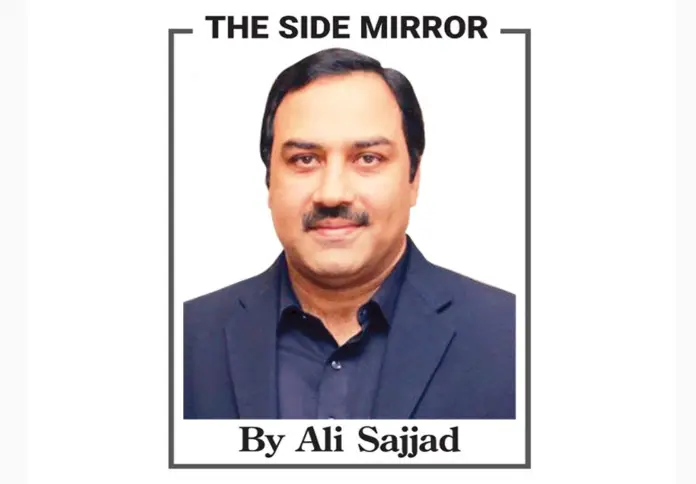Perception vs reality and Nawaz Sharif’s comeback
In the fast-paced world of politics, sometimes it’s not about what’s real but what people perceive. It’s like a magic show where the trick is more captivating than the actual magic. And in Pakistan’s political arena, perception often defeats reality.
This is what I have been conveying to the PML-N circles.
Take the case of former Prime Minister Muhammad Nawaz Sharif, the quiad of the PML-N. He made a magical return from London after four years, and the way it played out is turning heads.
Just three days ago, the Islamabad High Court granted him protective bail in the Avenfield and Al-Azizia Mills reference cases, preventing his arrest. Now, the talk of the town is that Nawaz Sharif is receiving special treatment from the caretaker government, the courts, and the establishment.
The perception is gaining strength, and all political parties are talking about the events of October 21. That was the day Nawaz Sharif landed at Islamabad airport and signed petitions to revive pending appeals against his convictions. It left many wondering if the party could have handled it differently.
Instead of getting his fingerprints taken at the airport, the former prime minister could have chosen to go to court, surrender, and follow the proper legal procedures. But four days later, both the accountability court and the Islamabad High Court extended his bail in the Tosha Khana case.
This move wasn’t a surprise. Legal experts point out that the situation has changed, unlike in the past. NAB should have opposed the cases, they say. These cases lack a solid foundation, and Mian Sahib’s legal team could have managed them more effectively.
The speed at which these cases are progressing suggests that Nawaz Sharif’s sentences may also be overturned, providing him with swift relief. It’s as if a new chapter is beginning.
The decision of the Islamabad High Court on October 19 has paved the way for Nawaz Sharif’s request to the Punjab government to be approved. In that request, he argued that the cases against him were politically motivated and that the sentences handed down were unjust. His appearance in the Islamabad High Court led to bail being granted and the cancellation of the perpetual warrant in the Toshakhana case.
Legal experts say that this wave of relief should not be exclusive to one politician. They demand that the same treatment be given to other politicians, including PTI’s leaders. With Nawaz Sharif’s return, both his party and the nation have regained faith in the political process. It appears that concerns about the upcoming elections have dissipated. The Election Commission of Pakistan is preparing voter lists in accordance with the 2023 census, ensuring that the electoral process remains on track.
The recent chaotic rhetoric and political instability of the past five years have made it essential to accept election results openly and develop a healthy democratic process. Nawaz Sharif, the leader on the legal front, has said this during his public meeting on October 21 in Lahore. He has made it a top priority to meet with political leaders and foster an atmosphere of tolerance.
This positive and sustainable vision has garnered praise from political critics. In the current situation, there is a pressing need for an open acceptance of election results, and the development of a healthy democratic process has never been more critical. It’s a message that every conscious Pakistani must understand.
As the countdown to the elections continues, the hopes for a brighter, more stable political future are gaining momentum. Perception may have played its part, but the road to reality is paved with actions that will shape the nation’s destiny.







